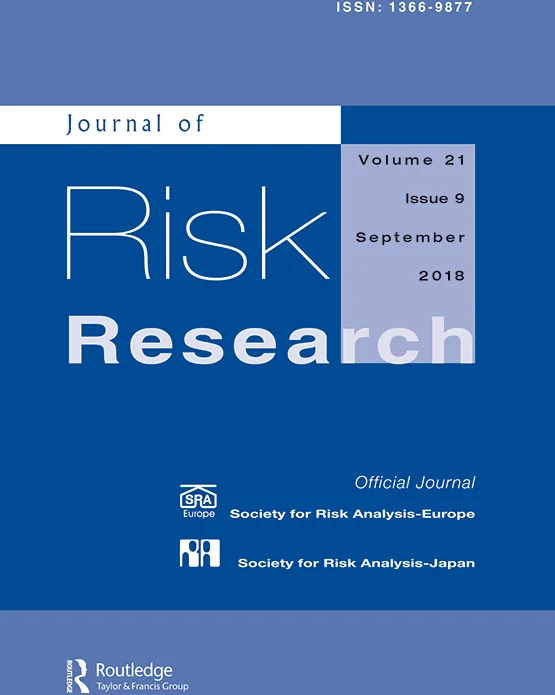A comparative study of Chinese and American public perceptions of shale gas development
IF 2.4
4区 管理学
Q1 SOCIAL SCIENCES, INTERDISCIPLINARY
引用次数: 2
Abstract
Abstract This paper examines public perceptions of shale gas development in China and the United States. Public perceptions are important, as they are known to influence public policy at national and local levels of government in both multi-party and single-party governance systems. Online surveys were conducted in several states/provinces in each country, the US survey in 2014 (N = 2833); the China survey in 2016 (N = 1571). Similar survey instruments were used in both countries. The survey results show that the reported levels of public support for shale gas development among Chinese respondents in select provinces are significantly higher than that among US respondents in the states included in this study. Perceptions of the advantages and disadvantages of shale gas have both similarities and differences. Shale gas is perceived favorably in both samples because it is seen as a way to reduce dependence on foreign energy suppliers and strengthen the economy. The potential environmental advantages appear to be relatively more important to Chinese respondents than to American respondents. The statement “shale gas development is good for the environment because it substitutes dirty energy such as coal and oil” is seen as “Extremely important” by 54.23% of all Chinese respondents but by only 33.75% of American respondents. When it comes to the potential disadvantages of shale gas development, concerns about impacts on drinking water quality are important in both samples. Earthquakes related to shale gas is the second most important concern to Chinese respondents but a lesser concern to US respondents. We argue that the results are consistent with risk experiences, a variety of socio-cultural theories, and differences in media coverage in the two countries. Future work should examine how public perceptions in the two countries change over time, and how the stances of environmental groups, government, and industry may influence public opinion.中美公众对页岩气开发认知的比较研究
摘要本文考察了公众对中国和美国页岩气开发的看法。公众认知很重要,因为众所周知,在多党和一党治理体系中,公众认知会影响国家和地方各级政府的公共政策。在每个国家的几个州/省进行了在线调查,2014年的美国调查(N = 2833);2016年中国调查(N = 1571)。这两个国家都使用了类似的调查工具。调查结果显示,选定省份的中国受访者对页岩气开发的公众支持程度显著高于本研究所涵盖各州的美国受访者。对页岩气优势和劣势的认识既有相似之处,也有不同之处。页岩气在这两个样本中都被看好,因为它被视为减少对外国能源供应商依赖和加强经济的一种方式。潜在的环境优势对中国受访者来说似乎比美国受访者更重要。54.23%的中国受访者认为“页岩气开发有利于环境,因为它可以替代煤炭和石油等肮脏能源”,但只有33.75%的美国受访者认为“极其重要”。当谈到页岩气开发的潜在劣势时,对饮用水质量影响的担忧在这两个样本中都很重要。与页岩气有关的地震是中国受访者关注的第二大问题,但美国受访者关注的较少。我们认为,研究结果与两国的风险经历、各种社会文化理论以及媒体报道的差异一致。未来的工作应该研究两国公众的看法如何随着时间的推移而变化,以及环保组织、政府和行业的立场如何影响公众舆论。
本文章由计算机程序翻译,如有差异,请以英文原文为准。
求助全文
约1分钟内获得全文
求助全文
来源期刊

Journal of Risk Research
SOCIAL SCIENCES, INTERDISCIPLINARY-
CiteScore
12.20
自引率
5.90%
发文量
44
期刊介绍:
The Journal of Risk Research is an international journal that publishes peer-reviewed theoretical and empirical research articles within the risk field from the areas of social, physical and health sciences and engineering, as well as articles related to decision making, regulation and policy issues in all disciplines. Articles will be published in English. The main aims of the Journal of Risk Research are to stimulate intellectual debate, to promote better risk management practices and to contribute to the development of risk management methodologies. Journal of Risk Research is the official journal of the Society for Risk Analysis Europe and the Society for Risk Analysis Japan.
 求助内容:
求助内容: 应助结果提醒方式:
应助结果提醒方式:


